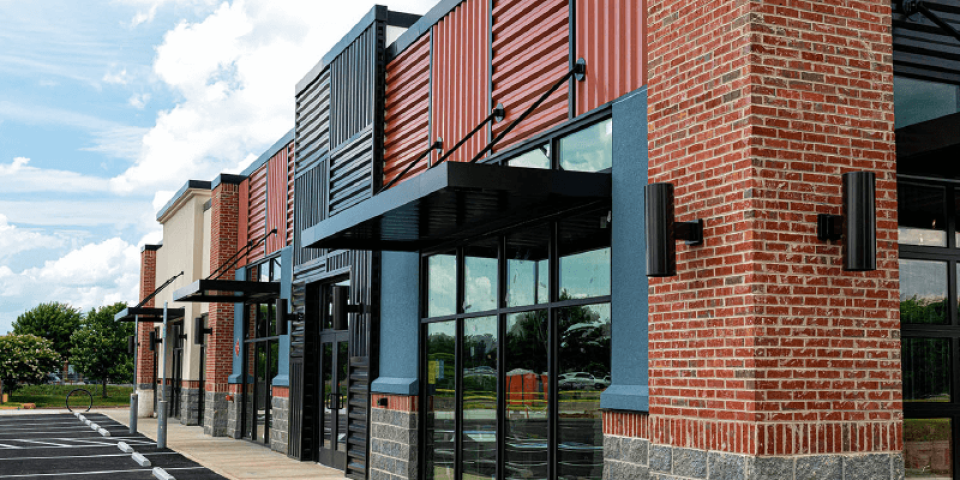Published on April 01, 2022
The Importance of Collateral Review in Commercial Lending
Written by

This article first appeared on CreditUnions.com.
As member-owned financial cooperatives, credit unions are well familiar with the ins and outs of mortgage lending to families buying a home, including how to judge and reduce risk. But as the industry gets deeper into commercial lending, a growing number of credit unions are finding themselves engaged in an unfamiliar new type of calculus.
That’s because underwriting member business loans differs in some fundamental ways from providing a mortgage for a house or condo. While the opportunity to forge a profitable, long-term relationship that benefits both borrower and lender is the same, evaluating the property involved is a very different process.
That’s where services such as formal collateral reviews from third-party partners come into play. That expertise is part of the package of collateral solutions offered by Servion Commercial Loan Resources, which now serves more than 500 clients, including about 470 credit unions.
Here’s more about collateral review in the context of commercial lending, courtesy of Tony Lillie and Janet Nelson, chief credit officer and collateral solutions manager, respectively, for the commercial lending services arm of The Servion Group in New Brighton, MN.
What is collateral review and what role does it play in commercial lending?
Put simply, collateral review is the due diligence that a credit union – or any other lender – does to ensure the accuracy of an appraisal of a property that’s being used as collateral for a loan. We’re appraising the appraiser’s report.
It can get complicated, but it comes down to something like this: Your appraiser for a potential deal tells you that a property is worth $1 million and presents you documentation that shows how. We review that report in detail to see if we can support that conclusion and tell you why or why not.
How does collateral review differ from an appraisal?
The biggest difference is that appraisals on residential properties are primarily all about what comparable properties have sold for. For a home loan, you look at properties in the same neighborhood, the same size, same layout, roughly the same condition, all those factors that credit union mortgage lenders are very familiar with from years of lending to homeowners.
But in commercial transactions, cash flow is usually the driving force when you’re reviewing that property as the proposed collateral. A good example is a situation we had near our offices here in Minnesota. There were two apartment buildings of the same size and age for sale. One was priced at $825,000. The other at $680,000. The difference? One was locally owned, immaculately maintained, and 100% occupied. The other had an absentee owner, deferred-maintenance issues, and was only about 20% occupied. The income streams for these two properties looked very different and that reflected in the sales price, and in how we assessed them as collateral.
Beyond that, you have to look at the value and predictability of that income stream. Compare that 26-unit apartment building that was 100% occupied to, say, a retail building of the same value that’s occupied by a Walgreens. That’s one tenant with a long-term lease instead of 26 each on their own short-term leases if any at all. Plus commercial leases like that are often what’s called net leases, in which the tenant is responsible for a lot of the operating costs like insurance, taxes, and maintenance.
How does effective collateral review help address risk for credit unions doing commercial lending?
Well, the risk arises because there are so many factors to consider that you just don’t see in a residential appraisal, including the types of businesses leasing the building, any potential environmental issues, and different regulatory rules covering everything from local zoning codes to federal agency oversight of sound lending practices.
The value of that property you’re underwriting is your credit union’s backstop, your last line of defense, against ultimately losing your investment in that owner and that property. That collateral would quite likely be the last thing liquidated to pay back the loan if a collection action got to that point.
The collateral review process helps create the final values that go into the appraisal, and it helps you, the lender, make sure the value is not overstated, that it’s not overly optimistic about what the borrower could get for the property if they had to sell it to satisfy creditors.
What are some of the most principal elements/procedures involved in collateral review?
There are three big pieces to this process. First, there’s compliance. We ensure the collateral reports comply with established best practices, including those from the Interagency Appraisal and Evaluation Guidelines that were first issued in 2010 during the financial crisis of that time.
The second part is we stress-test the data that the appraisers provided in their report. We want to make sure their information supports their final opinion of the value of the property. We take apart their report and put it back together again and see if we come to the same conclusion.
Thirdly, there’s due diligence about the appraisers themselves. Are they properly licensed? Are they properly insured? Have there been any disciplinary actions against them? We make sure the lender is aware of any issues, or the lack of any.
Level of expertise needed to do an effective collateral review
The regulators really cracked down after the 2008 financial crisis and went from a very checklist-oriented appraisal review process to one that focused much more strongly on assessing the quality of the information in the report.
Now, collateral reviewers have to have a deep understanding of what’s in that appraisal, about how values were computed, about what the leases are, about cash flow, about so much more.
The whole premise behind these guidelines is to make sure the collateral review is being done by people with experience in the process. We’ve done thousands of these, and our team continues to gain more experience and insight every day.
-
Trending Categories

